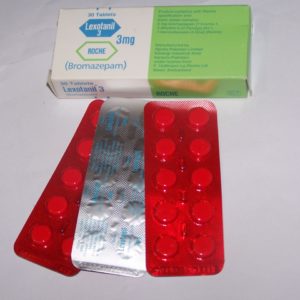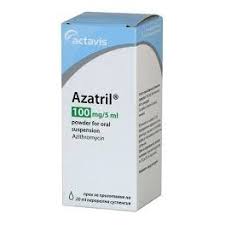Description
WHAT EXFORGE IS AND WHAT IT IS USED FOR
Exforge tablets contain two substances called amlodipine and valsartan. Both of these substances help to control high blood pressure. − Amlodipine belongs to a group of substances called “calcium channel blockers”. Amlodipine stops calcium from moving into the blood vessel wall which stops the blood vessels from tightening. − Valsartan belongs to a group of substances called “angiotensin-II receptor antagonists”. Angiotensin II is produced by the body and makes the blood vessels tighten, thus increasing the blood pressure. Valsartan works by blocking the effect of angiotensin II. This means that both of these substances help to stop the blood vessels tightening. As a result, the blood vessels relax and blood pressure is lowered. Exforge is used to treat high blood pressure in patients whose blood pressure is not controlled enough with either amlodipine or valsartan on its own.
BEFORE YOU TAKE EXFORGE
Do not take Exforge − if you are allergic (hypersensitive) to amlodipine or other medicines of the dihydropyridine type, − if you are allergic (hypersensitive) to valsartan or any of the other ingredients of Exforge. If you think you may be allergic, talk to your doctor before taking Exforge. − if you have severe liver problems, such as biliary cirrhosis or cholestasis. − if you have severe kidney problems or if you are having dialysis. − if you are more than 3 months pregnant. (It is also better to avoid Exforge in early pregnancy, – see Pregnancy section). If any of the above applies to you, do not take Exforge and talk to your doctor.
Take special care with Exforge
− if you have been sick (vomiting or diarrhoea). − if you are taking diuretics (a type of medicine also called “water tablets” which increases the amount of urine you produce). − if you are taking other medicines or substances that increase the level of potassium in your blood (e.g. some types of diuretics, potassium supplements or salt substitutes containing potassium). − if you have liver or kidney problems. − if you have a condition affecting the renal glands called “primary hyperaldosteronism”. − if you have had heart failure. − if your doctor has told you that you have a narrowing of the valves in your heart (called “aortic or mitral stenosis”) or that the thickness of your heart muscle is abnormally increased (called “obstructive hypertrophic cardiomyopathy”). If any of these apply to you, tell your doctor before taking Exforge. You must tell your doctor if you think that you are (or might become) pregnant. Exforge is not recommended in early pregnancy, and must not be taken if you are more than 3 months pregnant, as it may cause serious harm to your baby if used at that stage. The use of Exforge in children and adolescents is not recommended. Also tell your doctor if you have had a kidney transplant or if you had been told that you have a narrowing of your kidney arteries.
Taking other medicines
Please tell your doctor or pharmacist if you are taking or have recently taken any other medicines, including medicines obtained without a prescription. Your doctor may need to change the dose or take other precautions. In some cases you may have to stop taking one of the medicines. This applies especially to the medicines listed below: − lithium (a medicine used to treat some types of depression); − potassium-sparing diuretics, potassium supplements, salt substitutes containing potassium and other substances that may increase potassium levels; − anticonvulsant agents (e.g. carbamazepine, phenobarbital, phenytoin, fosphenytoin, primidone), rifampicin, St. John’s wort; − nitroglycerin and other nitrates, or other substances called “vasodilators”; − medicines used for HIV/AIDS (e.g. ritonavir) or for treatment of fungal infections (e.g. ketoconazole).
Taking Exforge with food and drink
You can take Exforge with or without food.
Exforge and older people
Caution is required when increasing the dosage.
Pregnancy and breast-feeding Pregnancy You must tell your doctor if you think you are (or might become) pregnant. Your doctor will normally advise you to stop taking Exforge before you become pregnant or as soon as you know you are pregnant and will advise you to take another medicine instead of Exforge. Exforge is not recommended in early pregnancy, and must not be taken when more than 3 months pregnant, as it may cause serious harm to your baby if used after the third month of pregnancy. Breast-feeding Tell your doctor if you are breast-feeding or about to start breast-feeding. Exforge is not recommended for mothers who are breast-feeding, and your doctor may choose another treatment for you if you wish to breast-feed, especially if your baby is newborn, or was born prematurely. Ask your doctor or pharmacist for advice before taking any medicine.
Driving and using machines
This medicine may make you feel dizzy. This can affect how well you can concentrate. So, if you are not sure how this medicine will affect you, do not drive, use machinery, or do other activities that you need to concentrate on.
HOW TO TAKE EXFORGE
Always take this medicine exactly as your doctor has told you. You should check with your doctor if you are not sure. This will help you get the best results and lower the risk of side effects. The usual dose of Exforge is one tablet per day. − It is advisable to take your medicine at the same time each day, preferably in the morning. − Swallow the tablets with a glass of water. − You can take Exforge with or without food. Depending on how you respond to the treatment, your doctor may suggest a higher or lower dose. Do not exceed the prescribed dose. If you have any further questions on the use of this product, ask your doctor or pharmacist. If you take more Exforge than you should. If you have taken too many tablets of Exforge, or if someone else has taken your tablets, consult a doctor immediately. If you forget to take Exforge If you forget to take this medicine, take it as soon as you remember. Then take your next dose at its usual time. However, if it is almost time for your next dose, skip the dose you missed. Do not take a double dose to make up for a forgotten tablet.
POSSIBLE SIDE EFFECTS
Like all medicines, Exforge can cause side effects, although not everybody gets them. Some side effects can be serious: A few patients have experienced these serious side effects (affecting less than 1 in 1,000 patients). If any of the following happen, tell your doctor straight away: Allergic reaction with symptoms such as rash, itching, swelling of face or lips or tongue, difficulty breathing, low blood pressure (feeling of faintness, light-headedness). Other possible side effects: Common (affecting less than 1 in 10 patients): Influenza; blocked nose, sore throat and discomfort when swallowing; headache; swelling of arms, hands, legs, ankles or feet; tiredness; redness and warm feeling of the face and/or neck. Uncommon (affecting less than 1 in 100 patients): Dizziness; nausea and abdominal pain; dry mouth; drowsiness, tingling or numbness of the hands or feet; vertigo; fast heart beat including palpitations; dizziness on standing up; cough; diarrhoea; constipation; skin rash, redness of the skin; joint swelling, back pain; pain in joints. Rare (affecting less than 1 in 1,000 patients): Feeling anxious; ringing in the ears (tinnitus); fainting; passing more urine than normal or feeling more of an urge to pass urine; inability to get or maintain an erection; sensation of heaviness; low blood pressure with symptoms such as dizziness, light headedness; excessive sweating; skin rash all over your body; itching; muscle spasm. If any of these affect you severely, tell your doctor.
HOW TO STORE EXFORGE
Keep out of the reach and sight of children. Do not use Exforge after the expiry date stated on the carton and blister. Do not store above 30°C. Store in the original package in order to protect from moisture. Do not use any Exforge pack that is damaged or shows signs of tampering.





Reviews
There are no reviews yet.